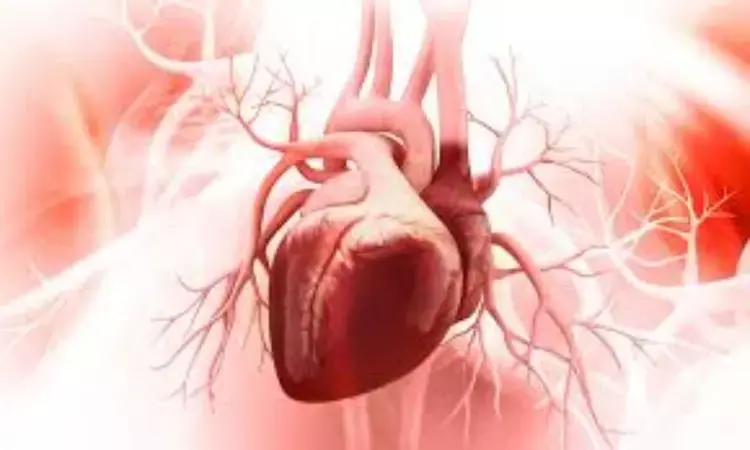- Home
- Medical news & Guidelines
- Anesthesiology
- Cardiology and CTVS
- Critical Care
- Dentistry
- Dermatology
- Diabetes and Endocrinology
- ENT
- Gastroenterology
- Medicine
- Nephrology
- Neurology
- Obstretics-Gynaecology
- Oncology
- Ophthalmology
- Orthopaedics
- Pediatrics-Neonatology
- Psychiatry
- Pulmonology
- Radiology
- Surgery
- Urology
- Laboratory Medicine
- Diet
- Nursing
- Paramedical
- Physiotherapy
- Health news
- Fact Check
- Bone Health Fact Check
- Brain Health Fact Check
- Cancer Related Fact Check
- Child Care Fact Check
- Dental and oral health fact check
- Diabetes and metabolic health fact check
- Diet and Nutrition Fact Check
- Eye and ENT Care Fact Check
- Fitness fact check
- Gut health fact check
- Heart health fact check
- Kidney health fact check
- Medical education fact check
- Men's health fact check
- Respiratory fact check
- Skin and hair care fact check
- Vaccine and Immunization fact check
- Women's health fact check
- AYUSH
- State News
- Andaman and Nicobar Islands
- Andhra Pradesh
- Arunachal Pradesh
- Assam
- Bihar
- Chandigarh
- Chattisgarh
- Dadra and Nagar Haveli
- Daman and Diu
- Delhi
- Goa
- Gujarat
- Haryana
- Himachal Pradesh
- Jammu & Kashmir
- Jharkhand
- Karnataka
- Kerala
- Ladakh
- Lakshadweep
- Madhya Pradesh
- Maharashtra
- Manipur
- Meghalaya
- Mizoram
- Nagaland
- Odisha
- Puducherry
- Punjab
- Rajasthan
- Sikkim
- Tamil Nadu
- Telangana
- Tripura
- Uttar Pradesh
- Uttrakhand
- West Bengal
- Medical Education
- Industry
Heart function recovered quickly in children with COVID-19-related MIS-C condition

DALLAS - Heart function recovery returned within three months in children who developed COVID-19-related multisystem inflammatory syndrome (MIS-C), according to new research published today in the Journal of the American Heart Association, an open access, peer-reviewed journal of the American Heart Association.
MIS-C is a new illness identified during the COVID-19 pandemic that affects children about four to six weeks after exposure to COVID-19. The new condition has some overlapping symptoms with Kawasaki disease, however, MIS-C is associated with more profound inflammation. MIS-C can cause inflammation in different parts of the body, including the heart, lungs, kidneys and gastrointestinal organs. About 80%-85% of MIS-C cases across the U.S. and Europe have involved the heart's left ventricle.
This study details the cardiovascular complications or damage found during a three-month follow-up period to assess the short-term impact of MIS-C. It also employs newer cardiac measurements, known as "strains," to assess heart function related to MIS-C. Strain testing is a more sensitive tool that can detect whether an area of the heart is deformed or if there are any subtle changes in heart function during cardiac contraction and relaxation.
"There is limited data at this time about how frequently and how long we should monitor heart function during the recovery state of MIS-C after the child leaves the hospital," said the study's senior author Anirban Banerjee, M.D., a professor of clinical pediatrics at the University of Pennsylvania Perelman School of Medicine and an attending cardiologist with the Cardiac Center at the Children's Hospital of Philadelphia, both in Philadelphia.
"Given that MIS-C was identified as a result of the COVID-19 pandemic, treatment protocols have not yet been standardized and follow-up care varies greatly, which may lead to confusion and anxiety among families of patients and their care team. Our research team hoped to provide some guidance and reduce the ambiguity on optimal care approaches, especially as it relates to sports participation," Banerjee added.
Researchers retroactively reviewed data on 60 children hospitalized with MIS-C due to COVID-19 exposure who were treated at two Philadelphia hospitals between April 2020 and January 2021. None of the children were initially diagnosed with COVID-19 before the onset of MIS-C symptoms. This group of children were 60% male, with an average age of 10 years. About 48% were Black children, 27% were white children, 15% were Hispanic children, 4% were Asian children and the race/ethnicity of 23% of the children was unknown. The participants were treated with intravenous immunoglobulin and/or systemic steroids. Researchers reviewed echocardiographic and clinical data from medical records, including demographic factors, testing, treatment and hospital outcomes.
Data on another 60 children who had structurally normal hearts and did not have MIS-C or COVID-19 exposure served as control subjects. Their average age was 11.5 years, and 55% were male; 62% white children, 27% Black children, 7% Hispanic children, 3% Asian and 8% unknown. The control participants were divided into two groups: 60% had echocardiograms on file that were done prior to the COVID-19 pandemic, and 40% had echocardiograms under rigid COVID-19 protocols after October 2020.
For the children with MIS-C, researchers analyzed images of the heart taken at the initial hospitalization (acute phase) and examined additional imaging for a portion of the children who also had scans up to three additional times – one week after the first scan (subacute phase); at the one-month follow-up; and at a three or four-month follow-up. The children were screened using conventional echocardiography, speckle tracking echocardiography – an imaging technique that analyzes the motion of the heart tissue - and cardiac magnetic resonance imaging (MRI) for images of the heart.
Hina Zahid Joined Medical Dialogue in 2017 with a passion to work as a Reporter. She coordinates with various national and international journals and association and covers all the stories related to Medical guidelines, Medical Journals, rare medical surgeries as well as all the updates in the medical field. Email: editorial@medicaldialogues.in. Contact no. 011-43720751
Dr Kamal Kant Kohli-MBBS, DTCD- a chest specialist with more than 30 years of practice and a flair for writing clinical articles, Dr Kamal Kant Kohli joined Medical Dialogues as a Chief Editor of Medical News. Besides writing articles, as an editor, he proofreads and verifies all the medical content published on Medical Dialogues including those coming from journals, studies,medical conferences,guidelines etc. Email: drkohli@medicaldialogues.in. Contact no. 011-43720751


